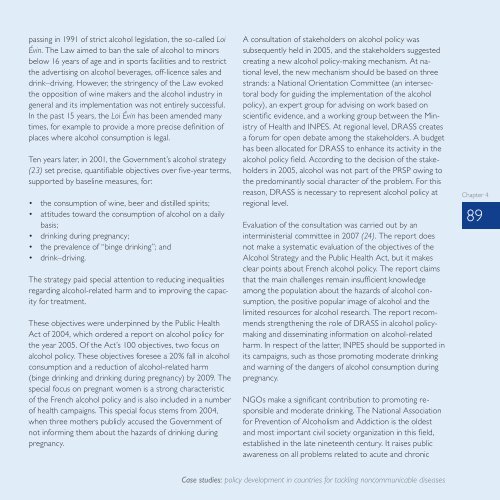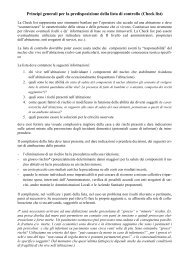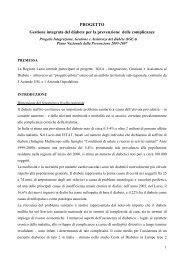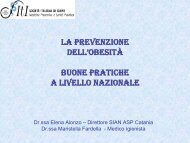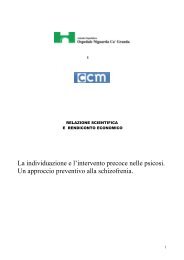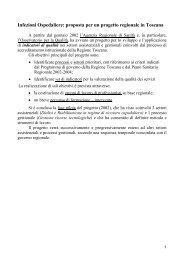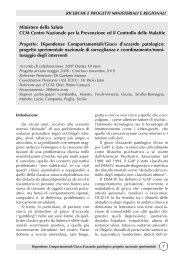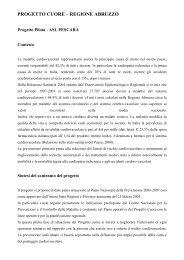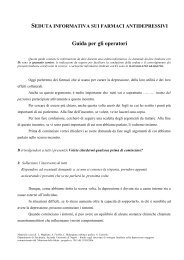Gaining health : analysis of policy development in European ...
Gaining health : analysis of policy development in European ...
Gaining health : analysis of policy development in European ...
Create successful ePaper yourself
Turn your PDF publications into a flip-book with our unique Google optimized e-Paper software.
pass<strong>in</strong>g <strong>in</strong> 1991 <strong>of</strong> strict alcohol legislation, the so-called Loi<br />
Év<strong>in</strong>. The Law aimed to ban the sale <strong>of</strong> alcohol to m<strong>in</strong>ors<br />
below 16 years <strong>of</strong> age and <strong>in</strong> sports facilities and to restrict<br />
the advertis<strong>in</strong>g on alcohol beverages, <strong>of</strong>f-licence sales and<br />
dr<strong>in</strong>k–driv<strong>in</strong>g. However, the str<strong>in</strong>gency <strong>of</strong> the Law evoked<br />
the opposition <strong>of</strong> w<strong>in</strong>e makers and the alcohol <strong>in</strong>dustry <strong>in</strong><br />
general and its implementation was not entirely successful.<br />
In the past 15 years, the Loi Év<strong>in</strong> has been amended many<br />
times, for example to provide a more precise def<strong>in</strong>ition <strong>of</strong><br />
places where alcohol consumption is legal.<br />
Ten years later, <strong>in</strong> 2001, the Government’s alcohol strategy<br />
(23) set precise, quantifiable objectives over five-year terms,<br />
supported by basel<strong>in</strong>e measures, for:<br />
• the consumption <strong>of</strong> w<strong>in</strong>e, beer and distilled spirits;<br />
• attitudes toward the consumption <strong>of</strong> alcohol on a daily<br />
basis;<br />
• dr<strong>in</strong>k<strong>in</strong>g dur<strong>in</strong>g pregnancy;<br />
• the prevalence <strong>of</strong> “b<strong>in</strong>ge dr<strong>in</strong>k<strong>in</strong>g”; and<br />
• dr<strong>in</strong>k–driv<strong>in</strong>g.<br />
The strategy paid special attention to reduc<strong>in</strong>g <strong>in</strong>equalities<br />
regard<strong>in</strong>g alcohol-related harm and to improv<strong>in</strong>g the capacity<br />
for treatment.<br />
These objectives were underp<strong>in</strong>ned by the Public Health<br />
Act <strong>of</strong> 2004, which ordered a report on alcohol <strong>policy</strong> for<br />
the year 2005. Of the Act’s 100 objectives, two focus on<br />
alcohol <strong>policy</strong>. These objectives foresee a 20% fall <strong>in</strong> alcohol<br />
consumption and a reduction <strong>of</strong> alcohol-related harm<br />
(b<strong>in</strong>ge dr<strong>in</strong>k<strong>in</strong>g and dr<strong>in</strong>k<strong>in</strong>g dur<strong>in</strong>g pregnancy) by 2009. The<br />
special focus on pregnant women is a strong characteristic<br />
<strong>of</strong> the French alcohol <strong>policy</strong> and is also <strong>in</strong>cluded <strong>in</strong> a number<br />
<strong>of</strong> <strong>health</strong> campaigns. This special focus stems from 2004,<br />
when three mothers publicly accused the Government <strong>of</strong><br />
not <strong>in</strong>form<strong>in</strong>g them about the hazards <strong>of</strong> dr<strong>in</strong>k<strong>in</strong>g dur<strong>in</strong>g<br />
pregnancy.<br />
A consultation <strong>of</strong> stakeholders on alcohol <strong>policy</strong> was<br />
subsequently held <strong>in</strong> 2005, and the stakeholders suggested<br />
creat<strong>in</strong>g a new alcohol <strong>policy</strong>-mak<strong>in</strong>g mechanism. At national<br />
level, the new mechanism should be based on three<br />
strands: a National Orientation Committee (an <strong>in</strong>tersectoral<br />
body for guid<strong>in</strong>g the implementation <strong>of</strong> the alcohol<br />
<strong>policy</strong>), an expert group for advis<strong>in</strong>g on work based on<br />
scientific evidence, and a work<strong>in</strong>g group between the M<strong>in</strong>istry<br />
<strong>of</strong> Health and INPES. At regional level, DRASS creates<br />
a forum for open debate among the stakeholders. A budget<br />
has been allocated for DRASS to enhance its activity <strong>in</strong> the<br />
alcohol <strong>policy</strong> field. Accord<strong>in</strong>g to the decision <strong>of</strong> the stakeholders<br />
<strong>in</strong> 2005, alcohol was not part <strong>of</strong> the PRSP ow<strong>in</strong>g to<br />
the predom<strong>in</strong>antly social character <strong>of</strong> the problem. For this<br />
reason, DRASS is necessary to represent alcohol <strong>policy</strong> at<br />
regional level.<br />
Evaluation <strong>of</strong> the consultation was carried out by an<br />
<strong>in</strong>term<strong>in</strong>isterial committee <strong>in</strong> 2007 (24). The report does<br />
not make a systematic evaluation <strong>of</strong> the objectives <strong>of</strong> the<br />
Alcohol Strategy and the Public Health Act, but it makes<br />
clear po<strong>in</strong>ts about French alcohol <strong>policy</strong>. The report claims<br />
that the ma<strong>in</strong> challenges rema<strong>in</strong> <strong>in</strong>sufficient knowledge<br />
among the population about the hazards <strong>of</strong> alcohol consumption,<br />
the positive popular image <strong>of</strong> alcohol and the<br />
limited resources for alcohol research. The report recommends<br />
strengthen<strong>in</strong>g the role <strong>of</strong> DRASS <strong>in</strong> alcohol <strong>policy</strong>mak<strong>in</strong>g<br />
and dissem<strong>in</strong>at<strong>in</strong>g <strong>in</strong>formation on alcohol-related<br />
harm. In respect <strong>of</strong> the latter, INPES should be supported <strong>in</strong><br />
its campaigns, such as those promot<strong>in</strong>g moderate dr<strong>in</strong>k<strong>in</strong>g<br />
and warn<strong>in</strong>g <strong>of</strong> the dangers <strong>of</strong> alcohol consumption dur<strong>in</strong>g<br />
pregnancy.<br />
NGOs make a significant contribution to promot<strong>in</strong>g responsible<br />
and moderate dr<strong>in</strong>k<strong>in</strong>g. The National Association<br />
for Prevention <strong>of</strong> Alcoholism and Addiction is the oldest<br />
and most important civil society organization <strong>in</strong> this field,<br />
established <strong>in</strong> the late n<strong>in</strong>eteenth century. It raises public<br />
awareness on all problems related to acute and chronic<br />
Chapter 4<br />
89<br />
Case studies: <strong>policy</strong> <strong>development</strong> <strong>in</strong> countries for tackl<strong>in</strong>g noncommunicable diseases


